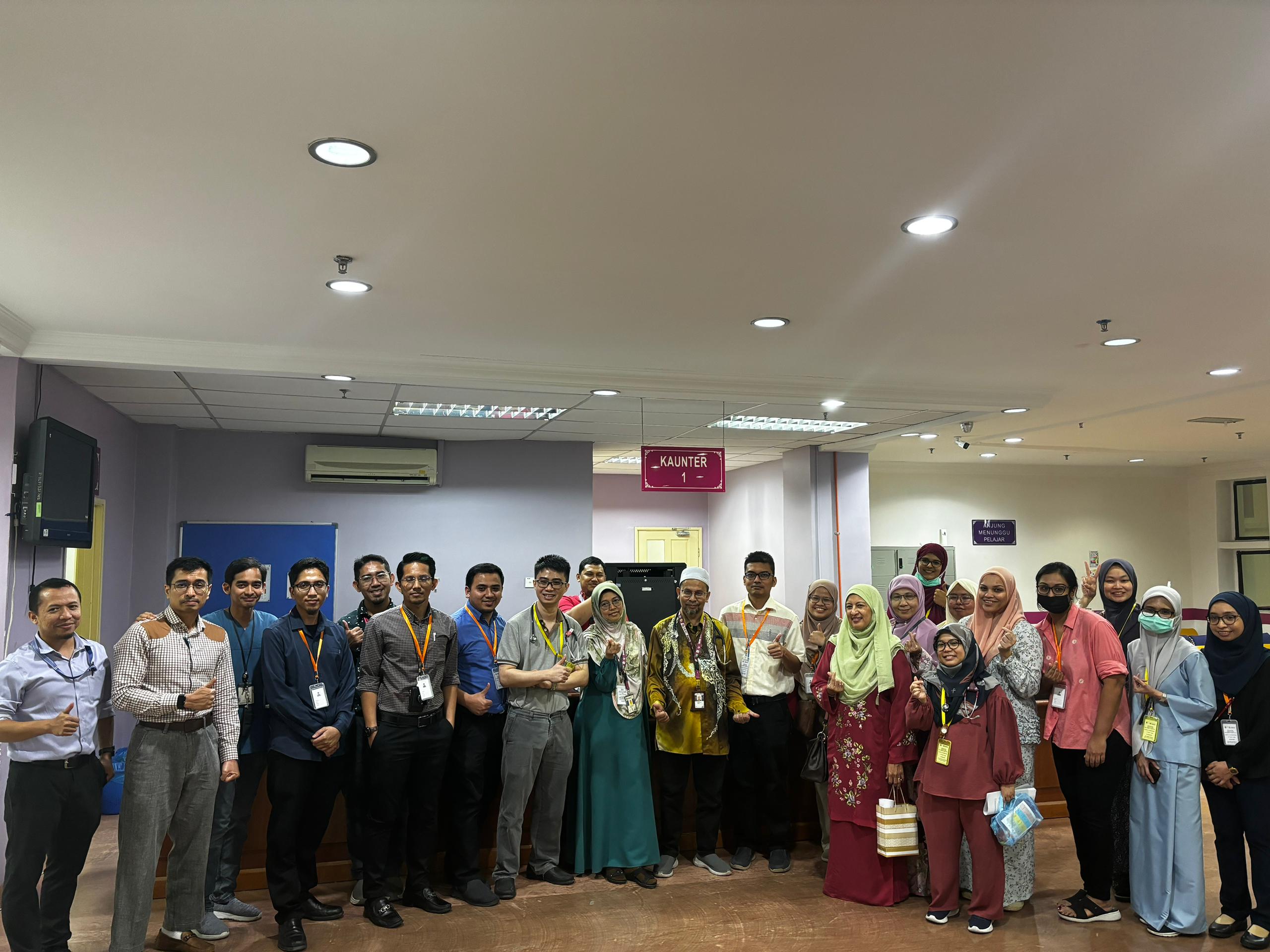Paediatric Mock Clinical Examination for MMED (Paediatric) and MRCPCH

On 14th September 2024, Department of Paediatrics at Hospital Universiti Sains Malaysia (HUSM) organized a comprehensive paediatric mock examination designed for candidates preparing for the Master of Medicine (Paediatrics) and the Membership of the Royal College of Paediatrics and Child Health (MRCPCH) clinical examination. The event was attended by 36 participants from various states, each aiming to improve their clinical skills and examination techniques. The mock exam served as an excellent platform for participants to simulate real examination conditions and receive feedback from experienced paediatric consultants.
The day began with a housekeeping announcement, ensuring all participants were familiar with the logistics of the day and the safety protocols. Following this, there was a session dedicated to sharing useful tips on how to pass the clinical exams, presented by paediatrician. This session covered strategies on how to handle stress, time management, and the common challenges that candidates often face during their clinical assessments, providing participants with practical guidance on navigating the examination process successfully.
The core of the mock exam consisted of 12 clinical stations, each reflecting real-life scenarios that candidates may face in the actual examination. The stations included key areas such as cardiovascular, neurology, respiratory, developmental assessment, communication skills, and miscellaneous paediatric conditions. Real patients were involved in these stations to provide the candidates with authentic clinical experiences. The variety of cases presented allowed participants to showcase their ability to handle complex clinical situations across multiple paediatric subspecialties.
Each station was supervised by experienced consultant paediatricians who have a wealth of experience as examiners for both the Master of Medicine and MRCPCH exams. The consultants evaluated the participants as they would in a real examination setting, assessing their clinical knowledge, diagnostic skills, and interaction with patients. After each station, detailed feedback was provided, highlighting the candidates' strengths and identifying areas that needed improvement. Marks were also given, offering the participants an understanding of their performance in relation to exam standards.
The participants expressed their satisfaction with the mock examination. Many of them appreciated the opportunity to examine real patients, as this offered a rare and invaluable chance to apply their theoretical knowledge in a practical setting. The direct feedback from experienced examiners was particularly well-received, as it allowed the participants to learn from their mistakes in real-time and refine their clinical approach. The feedback session also contributed to boosting the candidates' confidence as they prepare for their formal clinical examinations.
The programme concluded at 3:00 PM. Overall, the participants acknowledged that the mock exam was an enriching and valuable experience, providing them with insight into the examination process and helping them to better prepare for the actual exam. The Department of Paediatrics at HUSM was praised for their meticulous organization and commitment to supporting the professional development of paediatricians in training.